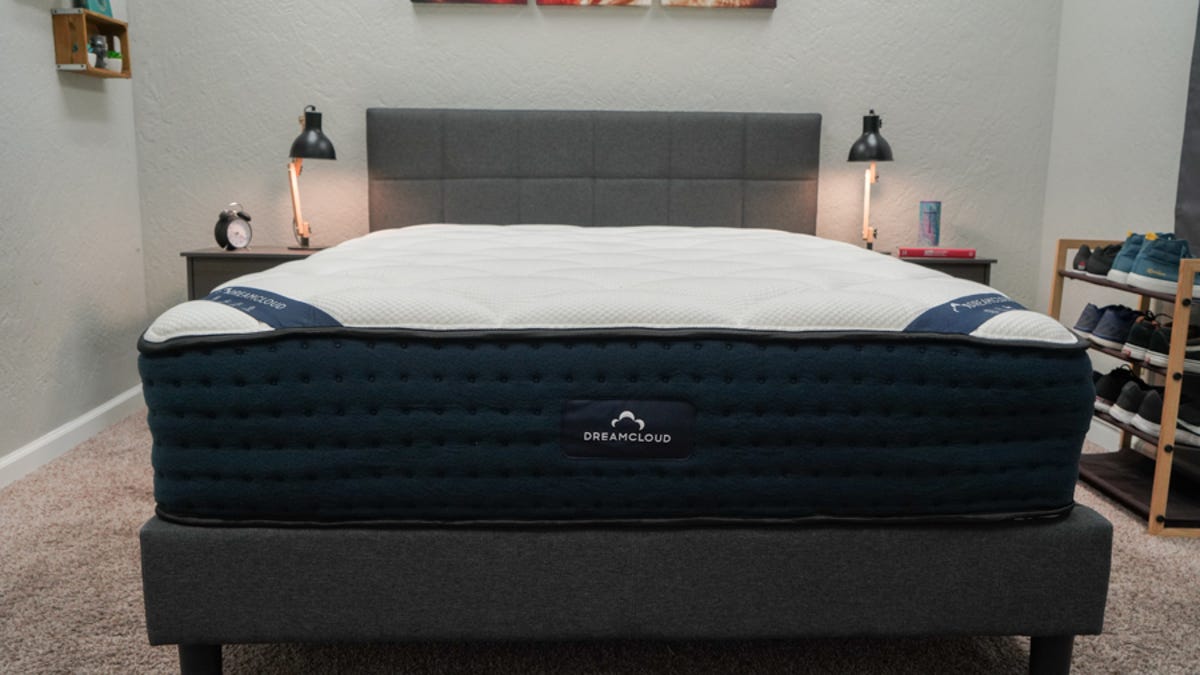Sleeping on a DreamCloud Mattress? The FTC May Offer You a Claim
Despite what the label said, DreamCloud mattresses aren't made in the US. Now you can file a claim about it.

If you've purchased a DreamCloud mattress in the last few years, you might have a claims notice from the Federal Trade Commission in your mailbox. Don't worry; your bed isn't defective, though DreamCloud's "proudly made with 100% USA-made premium quality materials" marketing is inaccurate.
Resident Home, the parent company of Nectar Sleep, misled consumers who decided to buy based on the misleading information that DreamCloud mattresses are made in the U.
The FTC found that DreamCloud mattresses are finished overseas and contain significant imported materials. Some have entirely imported materials, despite what their promotions have said.
In 2018, owner Ran Reske said the company never made claims about the US origin of DreamCloud mattresses. This was proven untrue; in 2021, the FTC sued Resident Home for its misleading advertising. The company settled, agreeing to refund the estimated 12,300 affected people.
If you bought a DreamCloud mattress because it was presented as made in the US, you can now apply for your refund. The deadline is Oct. 23, 2023.
What does it mean to be made in the US?
The FTC has recently finalized its Made in USA Labeling Rule, which has introduced civil penalties for companies that abuse labels.
To use Made in USA on a label, a company must prove the origin of their products. The entire thing doesn't have to be made or sourced from the US. The FTC leaves wiggle room with "virtually all" wording. Essentially, it means that all the significant parts and processes should be US-based.
The FTC has established qualifications for the label:
- The final assembly and all significant product processing must occur in the US.
- All or virtually all parts should be made or sourced in the US.
- A clear disclosure about how much and which components are not US-based must be available to shoppers.
Mattress companies now must be able to verify the source of all their materials and processes to earn an American flag on their labeling.
Don't forget to check the label
According to Title 19 of the United States Code, the origin of a product must be displayed on the label. OK, you can't exactly check the label when shopping for a mattress online. Thankfully, the information should be available on every mattress retailer's website. Sometimes it's on the "about" page; other times, you have to dig. For example, the Nectar mattress information is a dropdown box in their frequently asked questions section almost at the bottom of the page.
Several mattress brands produce their mattresses in the US. For instance, Brooklyn Bedding has a factory in Phoenix, Arizona. Nolah has eight factories across the country. Saatva is an environmentally friendly mattress option produced in the US.
There are plenty of good mattresses that aren't made in the US. It's not a requirement for a good night's sleep. However, mattresses are a big purchase, and consumers should feel confident that if the company claims the bed is US made, it should be.

